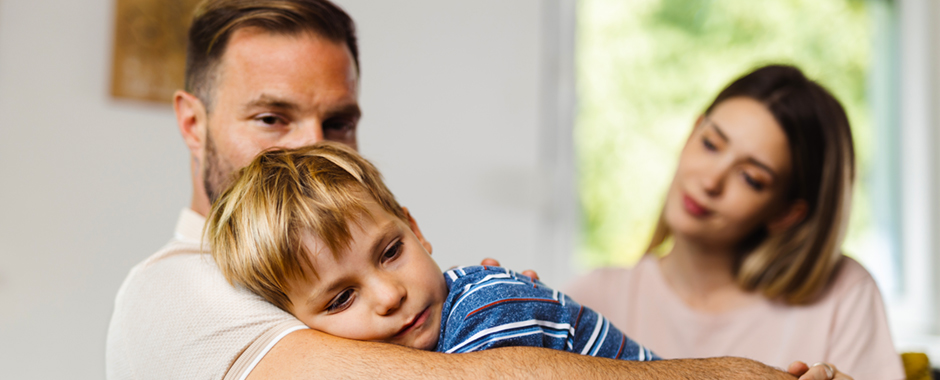Fires, car accidents, plane crashes, earthquakes. Shootings in schools, movie theaters, and airports. War and terrorism … the list of horrible things that can happen is endless. And the fact that the world can be very dangerous is in stark contrast to one of our jobs as parents—to give our children safe space to explore the world and become independent individuals. But how do we do this when we can’t guarantee their safety all the time? And how do we respond to our kids when they’re frightened by the very real dangers of today’s world?
Kids may respond to feeling unsafe in a variety of ways. They might act out, becoming increasingly defiant and aggressive. They may cry more, struggle to fall asleep, have nightmares, isolate themselves, or have stomachaches. Our children need our help to feel safe and to manage the feelings associated with tragedy and violence.
Here are some tips on how to help kids feel safe:
- Maintain structure and routine.
Kids feel safe when their environment is structured and they know what is happening next. This is most important when they are feeling stressed or overwhelmed. Maintaining mealtimes and bedtimes and keeping rules and limits consistent is important in helping kids feel safe. - Minimize and monitor their access to media violence.
Research shows that by age 18 an American child will have seen 16,000 simulated murders and 200,000 acts of violence via the media. Young children aren’t able to recognize what’s real and what’s acting. Seeing violence on TV can leave them feeling like their world is a scary place, where things like that might happen at any moment. Minimizing our children’s access to violent images will help them feel safer and more secure, and decrease the likelihood of them acting aggressively toward others. - Remind them of all the people looking out for them and protecting them.
Recently I had a therapy client who had been in her school when it was on lockdown after a shooting nearby. She was having difficulty sleeping and barely eating. Her parents weren’t sure how to help her and didn’t feel like they could honestly say to her, “Don’t worry, you’re safe, you’ll always be okay.” We started to make a list of the people in charge of keeping her safe—her parents, her teachers, the police and firefighters, her dog, me, her aunts and uncles… the list was long. Then we drew a picture of her, and of all of her protectors surrounding her. By the end, the paper was crowded with her pictures, a testament to the layers of safety created by those charged with keeping her safe. So while we can’t guarantee our kids’ safety, we can remind them how many people love them and are looking out for them. - Help them realize how strong and capable they are.
When you see your child make a smart, safe choice, point it out to them! When they remember to wear their bike helmet, take your hand when entering a crowded space, or approach a strange dog carefully, take note of this and point it out to them. Let them know that they are capable of making safe choices and being aware of their surroundings. Kids will feel empowered to know that they have the skills and inherent knowledge to stay safe in a not-so-safe world. - Recognize when they need professional help.
If your child is repeatedly expressing that they feel unsafe and are unable to be soothed, or if these feelings are impacting their sleep, or ability to learn at school, it’s probably time to seek professional help. The professionals at The Center for Children and Youth can offer parent consultations and child therapy. They can partner with you to determine how to best support your child and help your child develop tools to manage their anxiety.
Alyse Clayman, LCSW, provides consultation and therapy to families and children of all ages.
If you or your child could benefit from counseling or support, we are here for you. Call us at 1-888-927-0839 or contact us online.



